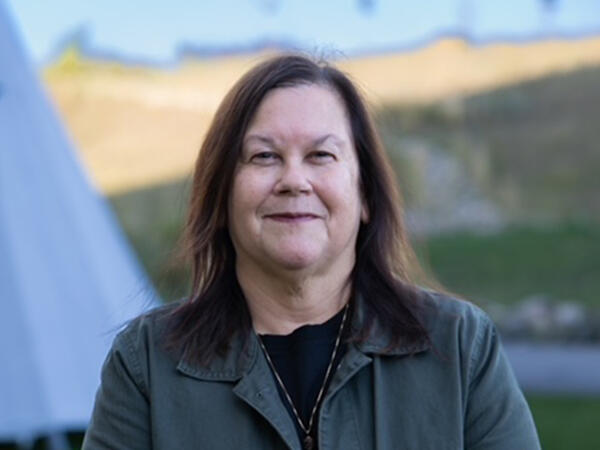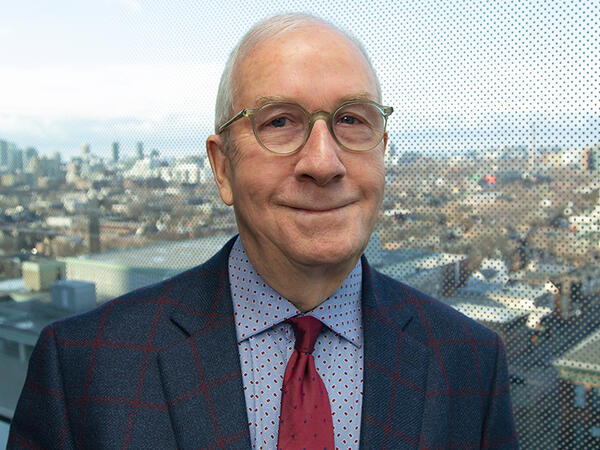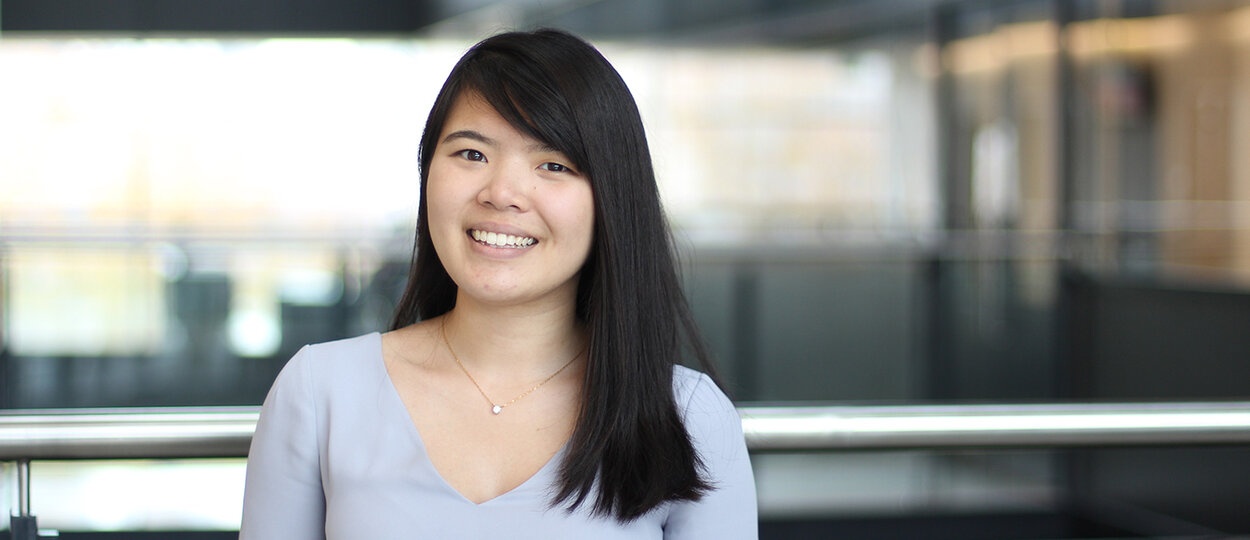As the world continues to battle the COVID-19 pandemic, we have seen a significant increase in single-use products in healthcare. While these products are life-saving and necessary to keep patients and healthcare providers safe, this dramatic increase also calls attention to the need for developing widespread sustainable practices in healthcare to decrease waste globally.
For pharmacy student Aileen Liu (2T3), this call to action inspired her to join the Emerging Leaders for Environmental Sustainability in Healthcare (ELESH), a multidisciplinary student group at the University of Toronto focused on finding new ways to address issues of environmental sustainability in healthcare.
This November, Liu participated in the Sustainable Health Care Virtual Challenge, a national competition hosted by ELESH, to develop programs to reduce single-use products in the Canadian healthcare system. Alongside Temetry Faculty of Medicine student Noel Kim, Liu pitched ReVialize, an incentive-based recycling program for single-use vials in community pharmacies. The idea placed in the top five of 26 teams across Canada.
As Liu continues to find new ways to reduce single-use products in pharmacy, we asked her a few questions about her project, and how to build a sustainable future in pharmacy.
What benefits would ReVialize have on the environment?
One significant source of medical waste comes from single-use prescription vials. In Canada, 774 million prescriptions were filled in 2019, with approximately 41 per cent of Canadians using at least one prescription medication. The resulting waste generated by vials would fill 13 Olympic sized swimming pools, with the majority of these bottles ending up in landfills and oceans. Plastic is not biodegradable, but rather it breaks down into smaller fragments and gets ingested by wildlife and the chemicals can leach into groundwater. Medications that are discarded with vials also travel into water systems, causing side effects in organisms and affecting food chains.
ReVialize is a program that would end this single-use cycle by recycling plastic and reusing the raw materials. In the long run, this program could decrease the amount of plastic in our environment to prevent negative effects on ecosystems, reduce greenhouse gas emissions, and save energy as one ton of recycled plastic can save almost 6,000 kilowatts of energy. Any leftover medications will also be collected and safely disposed. Ultimately, this system limits pollution from the plastic production process and minimizes waste in our environment.
How is ReVialize different than other recycling based programs?
Plastic pill bottles are recyclable, however only a small percentage end up being recycled. Larger bottles and containers are preferred for proper recycling, while pill vials often get omitted due to their small sizes and are mistaken for broken glass or debris. They may also be intentionally excluded due to the possibility of causing contamination from the remaining medications or adhesive labels. For these reasons, some regional recycling programs do not even accept pill vials.
Our plan involved applying a small fee to each vial that is dispensed, in which customers are reimbursed when returning a used vial. When vials are returned to pharmacies, this ensures that all vials get recycled, maintains patient confidentiality as the labels gets shredded, and reduces medication waste.
Implementing this return system is convenient for customers and provides opportunities for pharmacists to gather information and counsel on medication adherence. When the vials made from recycled plastic are delivered to pharmacies, the collected vials will be returned to the supplier for recycling. This minimizes the costs and emissions involved in the extraction of raw materials and transportation. ReVialize is a feasible and impactful program that revitalizes pill vials to create a sustainable healthcare system.
How can pharmacy students get involved in sustainability efforts in healthcare?
I encourage pharmacy students to learn more about how medical supplies are produced and how waste is being managed in healthcare settings. By having an understanding of these operations, students are able to challenge current practices and propose improvements to develop sustainable initiatives. Sustainable solutions need to be feasible and maintainable, yet they can be simple. Another way to make an impact is to reduce unnecessary waste and conserve energy in the workplace when possible.
What were some of the other top ideas in the competition?
Some initiatives included engineering single-use masks to increase their use, creating eco-friendly lab supplies, and distributing and enhancing the accessibility of reusable menstrual products. All of the ideas were diverse and the teams took a creative approach to their solution.
While there were not any other pharmacy related ideas, PPE was a problem that many teams addressed as the pandemic has necessitated its use.
Do you think safety (i.e. PPE) and sustainability are mutually exclusive?
I believe that safety and sustainability can coexist. Although it may not be feasible for healthcare to become a zero-waste system, it can certainly become a less waste system that is sustained long-term. The use of single-use medical products will still be needed to prioritize health and safety for certain cases. But the materials that are used, how they are sourced, and how the waste is managed can be improved in contributing to a sustainable healthcare system, without compromising safety or quality.
What impact do you hope ELESH can make on the future of healthcare?
ELESH has created a community of interdisciplinary students and leaders who are advocates and motivated by this issue. I look forward to seeing ELESH continue pioneering this movement to create a healthcare system that consists of sustainable products and practices adopted into all fields of healthcare.
More News
Image

Pharmacy alum sees change in acceptance of Indigenous cultures in health care
During Deborah Emery’s 40-year pharmacy career, she provided care in Sioux Lookout, Thunder Bay and Manitoulin Island.
Read More
Image

Grad to Watch: Jackie Fule Liu’s research focuses on better outcomes for diabetes patients
A recent PhD graduate, Jackie Fule Liu combines hands-on skill and big-picture thinking to help tackle diabetes care challenges.
Read More
Image

U of T community members recognized with Order of Canada
Congratulations to Dean Emeritus and Professor K. Wayne Hindmarsh on his appointment.
Read More
